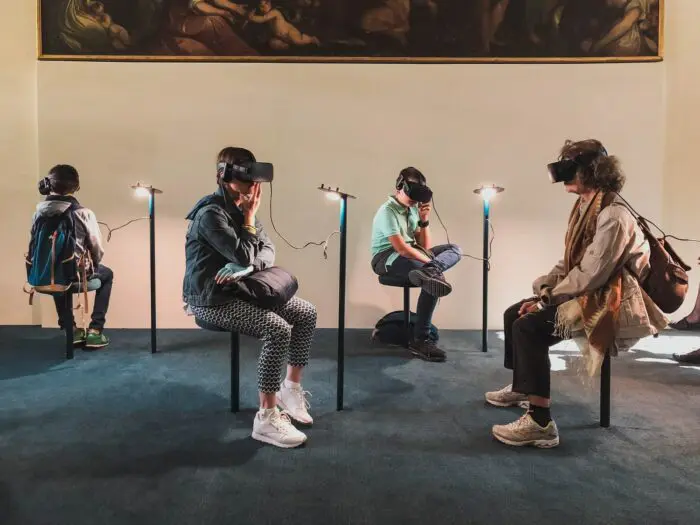Rapidly developing online technologies that allow users to dive even deeper into virtual reality do not need to contribute to sedentary lifestyles and unhealthy habits.
Therefore, WHO/Europe is exploring opportunities within new digital media and entertainment formats to promote healthier lifestyles with support from policies in Member States.
Diving deeper into the Web: what are the risks?
The internet as we know it, with browsers and social media platforms, is changing into another digital ecosystem, known among tech enthusiasts as Web 3.0. Digital companies are already investing in new technologies. They will offer people the opportunity to dive into the virtual reality so-called metaverse – a deep augmented virtual reality; a mixture of social media and a massive online video game.
“This is seen as a challenge from the perspective of health. Spending more time online connected to the metaverse with gadgets may reduce levels of physical activity and give advertisers many more ways to promote unhealthy products such as junk food, tobacco or alcohol,” explained Dr Kremlin Wickramasinghe, Acting Head of the WHO European Office for the Prevention and Control of Noncommunicable Diseases (NCD Office).
At these early stages when stakeholders are still developing this space, public health experts and policy-makers should clearly define and integrate health promotion strategies into digital ecosystems.
Recently WHO organized a series of events and published a factsheet titled “Tackling Noncommunicable Diseases with Digital Solutions” that provides some examples of digital health approaches used by WHO’s NCD Office.
“We need a spotlight on healthy food”
A movement towards a healthier digital ecosystem can already be felt online. Jacob, a young video gaming enthusiast from the United Kingdom, shared with WHO his message explaining his vision of promoting healthy diets in the online gaming industry. “Video games are something I grew up with. I have been playing video games for as long as I can remember. And since the very beginning of my interest in gaming, I have been bombarded with junk food ads,” explained Jacob.
Similar to social media, popular online video games allow the promotion of unhealthy products, targeting them at children and adolescents while embedding ads directly in gaming environments.
Such practices remain challenging to regulate. Therefore, Jacob is one of the leaders of the charity Bite Back 2030 that is raising the urgent issue of making diets healthier and making healthy food options more accessible for school-aged children and adolescents.
“Video games have been very helpful in bringing people together. I have made many friends while gaming. I really believe that video games can be a force for good so I think that is something that video gaming needs. It needs that spotlight shone on healthy food”.
Healthy
Digital advertising is a worldwide business worth billions of US dollars. Social media have become a major opportunity to promote unhealthy products online because in many countries of the Region this territory is a legal grey zone with no strict rules for advertising.
In addition, digital formats can effectively disguise advertisements of tobacco products, unhealthy foods or alcoholic beverages as user-generated posts, memes, news articles or entertainment formats.
“For greater effect, governments and policy-makers need to consolidate their voices around the requests for the main online platforms that have a massive impact on people’s online lives. The platforms can behave differently across all different health topics, to create a healthier ecosystem in the WHO European Region and far beyond”, said Tobin Ireland, Special Industry Advisor to WHO/Europe during the Digital4NCD conference held in Moscow in December.
Opportunities for new policies
Unhealthy habits and diets and physical inactivity are serious risk factors for noncommunicable diseases (NCDs) such as cardiovascular disease, diabetes and cancer.
NCDs are the biggest killers in the WHO European Region, accounting for 80% of premature deaths. People living with NCDs are also at much higher risk of adverse outcomes when infected with COVID-19.
Advances in the area of big data and artificial intelligence have opened new opportunities for monitoring health and fighting NCDs. Governments and decision-makers across the WHO European Region can use the data to control digital environments.
WHO proposes more action in line with the European Programme of Work, 2020–2025 (EPW), which is focused on united action for better health.
Empowerment through digital health is one of the four flagship initiatives of the EPW, complementing efforts of countries and partner institutions by providing guidance and expertise on the safety and efficacy of digital health solutions while preserving health equity, gender equality and human rights as core values.







